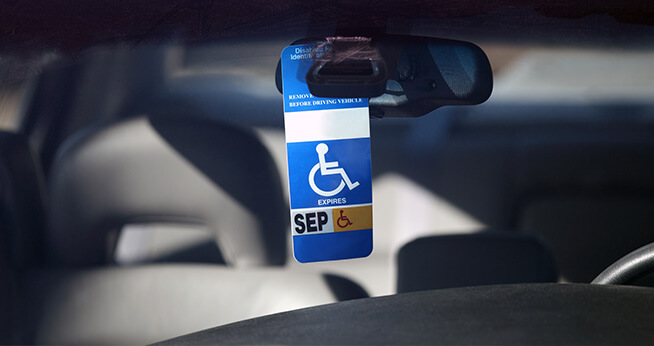Accident Liability if the Driver is Disabled in San Diego

Many Californians may wonder how a driver’s disability or restricted license status comes into play in a car accident. Ultimately, any driver who obtains a California driver’s license has proven he or she has the ability to safely operate a motor vehicle. This includes people with disabilities; therefore, people with disabilities who qualify for drivers’ licenses have the same duty of care on the road as all other drivers.
Potential Liability for a Disabled Driver
A disabled driver is any driver who does not possess the ability to physically operate a vehicle safely without the use of assistive technology or special devices. For example, a driver who has little to no use of his or her legs would be unable to operate a vehicle’s acceleration and braking pedals. However, he or she could have a hand-operated pedal system installed that allows safe pedal operation with one hand while steering with the other.
Disabled drivers can qualify for drivers’ licenses as long as they have the necessary assistive devices installed in their vehicles. This presents an additional level of liability beyond that of an able-bodied driver; the disabled driver must ensure safe installation and maintenance of all assistive devices installed in his or her vehicle. If a disabled driver requires specialized eyewear to drive safely, he or she has an obligation to wear the device at all times while driving. If a disabled driver fails to properly use or maintain his or her assistive devices and causes an accident, the driver will likely be liable after a car accident.
Possible Legal Issues From a Disabled Driver Accident
Some may assume that disabled drivers would receive extra protection or some form of reduced liability in the event of an accident, but in reality, the opposite is true. Disabled drivers usually must take additional steps beyond those of a typical driver to ensure safe vehicle operation. Additionally, maintaining insurance is usually more expensive if insurance carriers consider physical disability a possible risk factor and require higher premiums.
Because disabled drivers effectively face a higher duty of care on the road than other drivers and more potential areas of liability, they must ensure their assistive devices and vehicles overall are in good working order at all times. It is possible, however, for a disabled driver to cause an accident due to a defective part or product used to operate the vehicle.
For example, if a disabled driver purchases a hand-operated vehicle pedal system for his or her vehicle but the device has a serious defect, the manufacturer could face liability for a defective product claim if the device leads to an accident. In a product liability claim, the plaintiff does not need to prove the defendant was negligent in the making of the product in question, only that the product in question is defective and responsible for the plaintiff’s damages.
Best Practices for Disabled Drivers
Any Californian with a disability may still have the option of driving, but it is vital to have a physician recommend appropriate assistive devices to ensure safe vehicle operation. The driver must also consult state and local laws to determine his or her obligations as a disabled driver. The state generally outlines which disabilities do not preclude obtaining a driver’s license and the requirements for obtaining a driver’s license with those disabilities.
An accident with a disabled driver is functionally identical to an accident with any other driver; an injured driver would need to identify the at-fault party, prove his or her negligence, and provide evidence of the extent of his or her resulting damages. A successful car accident claim can help a victim recover medical expenses, vehicle repair costs, and any other damages resulting from an accident.

